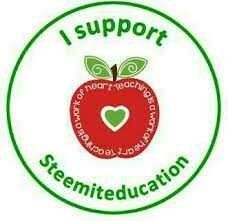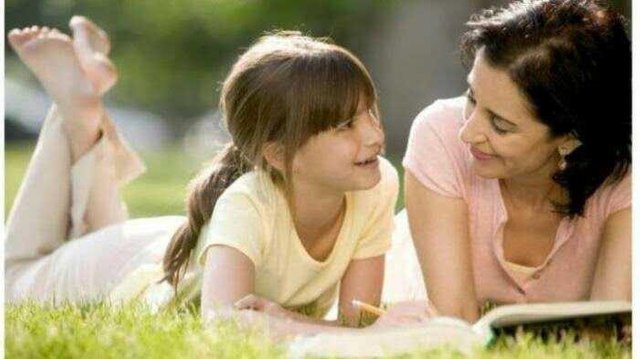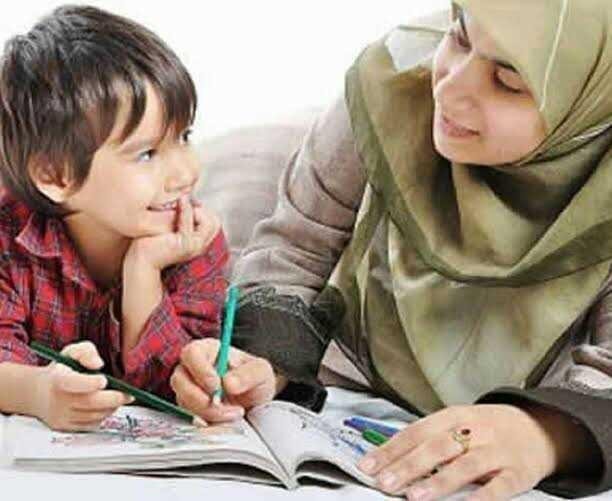The Importance of Early Childhood Education
Education is an important asset for the progress of a nation. Education should be given to children from birth to adulthood. Child education should not be forced, children's education should be adjusted to the age, needs, intellectual, emotional, social and other related aspects.
Early childhood education is very important because children experience physical development, mental and intelligence very rapidly. According to research about 50% of adult intelligence has occurred at the time of children aged less than 4 years.
The period of growth in the first year of the child can be called a critical period. The development of intelligence gained in this period will greatly affect the development in the next period and carried on until the child grows up. This golden period only comes once and the failure of this period is permanent and will greatly affect the quality of children's intelligence in the future.
THE ROLE OF PARENTS IN EDUCATION OF EARLY CHILDREN
Children are like white paper that is very easy to write, anything we teach to children will be memorable in his memory for a very long time. Every parent would want the best for her baby therefore as a parent is obliged to provide the right education for the baby.
Family or parents is the most important and most important place of education for children, especially for early childhood education. Because in the family the child is born and grows into adulthood. The shape and characteristics of education in the family will always affect the growth and development of character, character and personality of the individual.
Parents as the closest children have a vital role to the future of the child. The parent's obligations to the child and the responsibilities that need to be fostered and made aware of are as follows:
- Maintain and raise children so that children can live sustainably and experience optimal growth and physical development, mental and intelligence.
- Protect and ensure good physical and spiritual health, from various diseases and environmental hazards.
- Educate children with various knowledge and skills that are useful for the life of children so that when the child grows up able to stand alone and useful for others.
- Membah children, noble values and set ethics and manners so that children can get along in society and be well received.
The things that parents should do in educating children are as follows:
- Make parents as child idol figures
- Lead by example
- Develop affection
- Engage in the learning process of children
- The old man always teaches honesty and noble character
- Parents teach children with patience and constantly controlling emotions
- Always motivate children to always develop themselves, cultivate affection towards others, responsibility and willing to sacrifice.
- Teach and instill religious values or religion for children to grow into a person who always believes and cautious.
As a guide for parents to be able to provide early childhood education appropriate to the age of children and not wrong in assessing the growth of hearts, here is the stage of development of the baby or the cycle of physical and mental development of children at the age of 1-24 months.
Age of 1 month
At the age of one month an infant or child may begin to lift his head, holding his head at a 45-degree angle, gazing at the face, the baby's eyes following the object, responding to the sound, making a 'aah' and 'ohh' sound and smiling and laughing.
Age 2 months
Already mumbling, being able to see and follow things, babies pay attention to his hands, can hold his head and hold him for a while, smiling and laughing, making more regular movements and feet already beginning to hold light loads.
Age 3 months
Can recognize the face and smell of the people around him, can lift and hold the head more stable, the view can follow moving objects, shouting, chuckling, playing spit, can respond loud voice and can hold toys with hands.
Age 4 months
Can lift the weights with his legs, roll over, imitate the sound of two syllables such as 'mama', 'papa', 'chest', teething first, laughing when hearing people talking and can grasping toys.
Age 5 months
Playing with his hands and feet, recognizing his own name when called, can distinguish the base color, can roll over and stomach, insert objects into the mouth, will not part with the nearest (mother), and respond to new voices.
Age 6 months
Will turn toward the sound, imitate the sound, rolling-lying on the stomach, ready to receive complementary feeding (MP-ASI), inserting the object into the mouth, can move objects from one hand to the other and can sit without back.
Age 7 months
Can waved, stood by holding on, banging two things with his hand and recognizing the objects he held.
Age 8 months
Standing by holding on, talking more often, crawling, being able to point objects, searching for hidden objects, can pick up objects by pinning them, learn to walk and can show expression with gestures.
Age 9 months
Babbling, recognizing objects around him, drinking from a closed glass, standing without hands, exploring the surroundings, eating with his own hands, playing ci-luk-ba, and calling his father and mother with the right call of 'mama-papa'.
Age 10 months
Waving hands, crawling well, expressing desire with gestures, can stand upright for a while without holding on and putting things by hand.
Age 11 months
Understand simple instructions, take and place certain objects to a specific place and can bend from a standing position.
Age 12 months (1 year)
Walk a few steps, imitate others and his vocabulary begins to grow.
Age 13 months
Taking the goods while bowing, stringing two syllables, can reflect, express desire with words and body movements and can roll the ball.
Age 14 months
Taking the ball from the box and emptying it, can walk, imitate the game, point to the limbs, eat with spoons and forks, push or pull objects while walking, and open the lid and install it.
Age 15 months
Combine 3 syllables, walk backwards, doodle with crayons, run, ask for something to pick up, and can signal to silence by placing the index finger in front of the mouth.
Age 16 months
Can turn pages of books, often angry and frustrated, climbing things, stacking 3 blocks, learning to use objects or tools around them, taking off their own pants and taking a nap regularly.
Age 17 months
Weaves 6 words, pretends to play, speech begins to clear, throws and kicks the ball and grouping toys based on color / size or shape.
Age 18 months
Brushing your teeth with the help of others, disassembling pairs of toys, starting to urinate on your own, swinging your hands, and making patterned scribbles.
Age 19 months
Using spoons and forks according to function, helping others, understanding 200 words, washing hands, pointing pictures, expressing a desire when going to the toilet.
Age 20 months
Take off her own clothes, learn 10 new words every day, climb stairs, curious about her own genitals, draw straight lines and pinpoint limbs correctly.
Age 21 months
Make a clear goal of the little activites he does, construct 6 blocks, name the picture in the book, down the stairs, swing his arms strongly.
Age 22 months
Understand and follow two instructions at a time, compile a simple puzzle, call a few limbs at once, wear a loose shirt of its own and understand the concept of kebalikalikan (high x low).
Age 23 months
Can open the door, sing a simple song, interested in playing with other children, talking to themselves and often asking 'why' ?.
Age 24 months (2 years)
Mentioning 6 limbs correctly, understanding most of the words of an adult, speaking 3 sentences clearly and correctly, expressing his wish clearly, walking down the stairs safely, aware of the sex differences (male and female) and jumping.
COVER
In providing education to children it takes an extra patience and a broad knowledge of how to educate a good and right child. Because many parents who consciously or not often make mistakes while providing education to their children. What are the mistakes often made by these parents? You can find out in detail in the Parenting Error in Child Educate article.
Well, let me get here first about the discussion of the importance of early childhood education and the role of parents in it, hopefully what I say this time can be useful for all readers. Do not forget to always visit this simple blog and get many other interesting family articles.
Thanks for Visting @mohdirfan07


